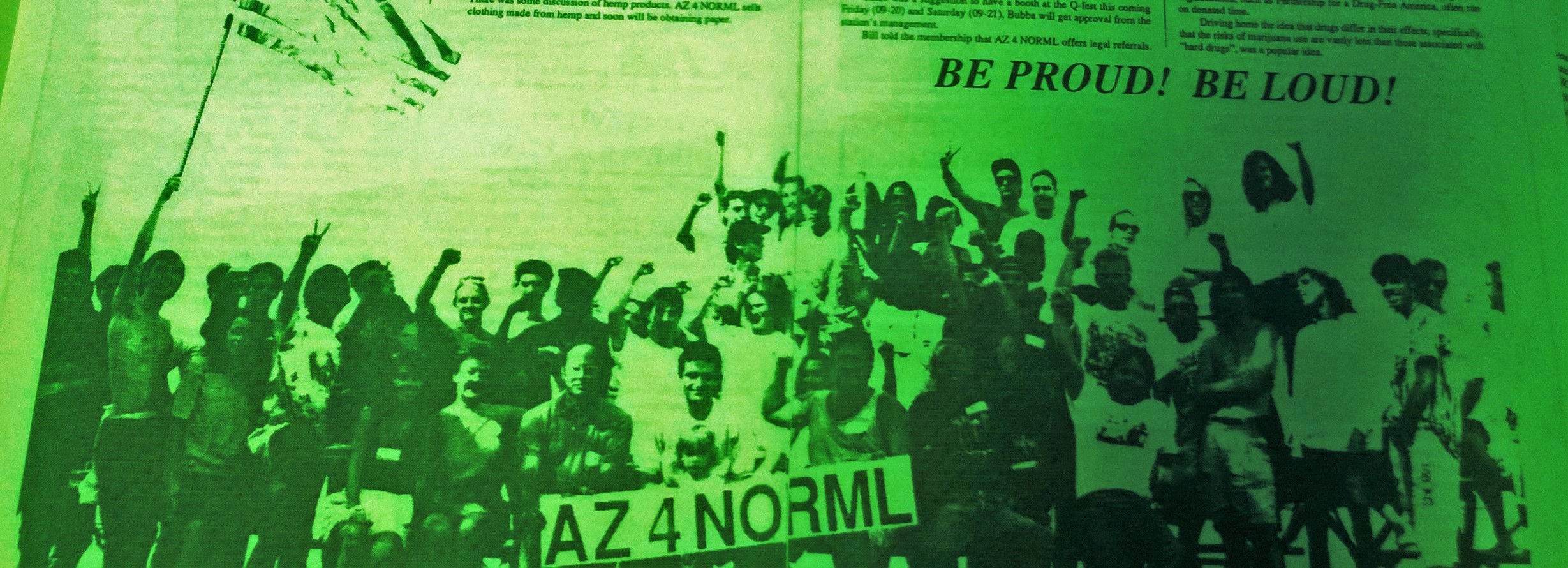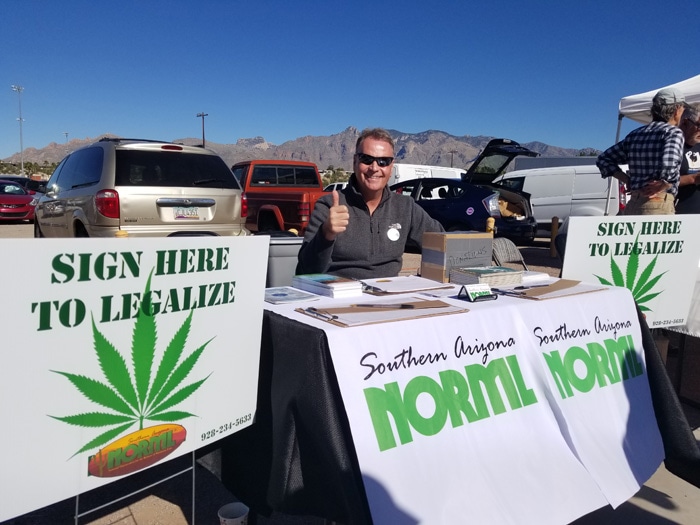Part 12 Blackmail B Us
[link to Part 1, Part 2, Part 3, Part 4, Part 5, Part 6, Part 7, Part 8, Part 9, Part 10, Part 11]
Gary Sheppard was a Bible-thumping, love-preaching Vietnam-vet who lost a body part or two during one of his tours. He also enjoyed marijuana. At the county fair in the early ’90s, he was arrested for public intoxication when a policeman mistook his disabled-gait for drunkenness. Charges were eventually dropped because there was no alcohol in him at all, and the whole affair made the local cops look bad. That made them mad.
According to Gary’s niece, Stacy Theis–rhymes with spice–he lived in one of those rural communities where, “everyone noses everyone.” Gary‘s marijuana use was no big secret, and when the local cops turned to the Kentucky State Drug Task Force to avenge themselves, it did not take a Sherlock Holmes to build a case against him. They lost the drunk-walking case against him, but they would show Gary who’s-the-boss by saddling him with a felony conviction for marijuana cultivation. They flew Vietnam-surplus helicopters over the farm where he was staying. They saw for themselves from the air the twelve pot-plants he was growing. In the early morn of August 8, 1993, with visual evidence in hand, they secretly surrounded the farm with dozens of police to prevent escape, brought in three helicopters from above, and stormed the farm from the front. But something went wrong. Instead of arresting him, they opened fire and shot Gary Sheppard dead.
Stacy Theis was seventeen years old and had not smoked pot at all when she found out the hard way about America’s dark side. While killing Gary Sheppard and his twelve pot-plants did not rid Kentucky of the Marijuana Menace, it did turn Stacy into a lifelong abolitionist. Gary would be proud of her. She moved to Arizona in 1995.
When it is the government doing the blackmailing, it is very difficult for the victims to fight back. See Part 2. Newspapers and TV reporters never tell the victim’s side of the story. They’re just dope-dealers…or worse. In addition to the usual stone-walling, plausible deniability is always maintained by the agents doing the dirty work. Connie Theis–no relation to Stacy Theis–was a nurse in Tucson, who also had never smoked pot in her life, when she found out. Some facts about the case are extremely difficult to establish with certainty, and my memory has blurred others. Nonetheless, here’s a quick re-cap of how and why the Tucson PD blackmailed the church-going Ms. Theis.
Constance Theis, then crowding 50, had been raised as a strict Southern Baptist, but was open-minded on any subject not covered by Scripture. She was widowed. Her late husband had run a used-car dealership, which she inherited, but which became quite a mess when he died from a sudden heart-attack; more of a liability than an asset. She had earned her nursing papers at the University of Arizona, and was working as a nurse at Tucson Medical, as I recall. She had heard of marijuana’s medicinal properties, and accepted them as genuine.
At the time, ‘93 or ‘94, a college-aged kid on disability, Robert, was renting a room from her. He was using marijuana–ostensibly–to alleviate his condition, whatever it was. Constance was aware of Robert’s pot use, and allowed him to posses it, on account of medical necessity, but she forbid him from using it on the premises.
Shortly after coming home from work one day, three detectives from the narcotics-unit of the Tucson PD knocked on her door with a search warrant. She was stunned. They brushed aside her protestations of innocence and carried out the search-warrant. They tore apart her late-model Toyota 4Runner, removed all the paneling, the radio, a few other goodies; they even cut open the upholstery. They found nothing…but they seized the vehicle anyway.
Then they searched her house. They found less than an ounce of pot in Robert’s room. As the owner of the house, she was now under arrest. She had a safe, with $2,500 cash in it from a recent truck-sale. They ordered her to open it, then seized the cash. She showed them the bill-of-sale. The detectives waved it off and divided the cash among themselves, “like the soldiers dividing up Jesus‘ clothes,” as she described it later. She was handcuffed, taken downtown, booked, fingerprinted, charged with felony possession of dangerous drugs, then released on her own recognizance. It took several years of tenacious investigation to figure out what had happened, but eventually she put the pieces together.
Not long before, she had hired a private contractor, Joe Conselez* to do some remodeling at her house. They got into a dispute over something. Conselez settled things by stealing lumber from her back yard. His truck had been around the house, so nothing looked unusual to the neighbors. He simply walked through the side-gate, in broad daylight, past the dog who already knew him, and loaded the lumber onto his truck, as if finishing up the job. At least, that’s what Connie suspected had happened.
*Spelling uncertain
Connie called the police, reported the theft, and fingered Joe Conselez as the prime suspect. She gave the cops her receipt for delivery of the missing lumber, so they could positively identify it, if found. The cops went to his house. The stolen goods were right there. They charged him with theft. That made him mad. Conselez decided to teach Theis a lesson…because that’s what police do.
Besides contracting, Conselez sold pot by the pound and worked as an informant for the Tucson narcotics department. It’s not clear whether he got busted at one point himself, and turned stoolie in order to avoid jail, or whether he was just shrewd, but he worked both sides. Joe either knew or befriended Robert, who had been accepted into an art academy in Colorado, and was soon to move. Robert had made living arrangements in Colorado, but he didn’t “know” anybody there. Joe convinced Robert to buy a pound of pot, then send it ahead of him, via the post-office, so he would have plenty of medicine available when he arrived, without the risk transporting it. After Joe sold Robert the pound of pot, he called his contact in the Tucson narcotics department, and they set up a stake-out at Theis’s house.
Connie later recalled seeing a strange vehicle parked just down the street in the days before her arrest, but didn’t think anything of it at the time. On the third day, while she was at work, Robert “borrowed” Connie’s 4Runner to take the pot to the post office. He had no vehicle of his own, and absolutely no permission to borrow hers, but in the police report, he allegedly had permission to use it. They used that for character-assassination as the case unfolded: the cops implied that this 50-year old woman was in a romantic relation with a disabled 18-year old; that they had been “shacking up”–she must have been horny–and therefore he had implicit permission to use her vehicle.
The narcotics detective followed Robert to the post office, noted the package he carried in, then alerted the Post Master. Dogs were brought in. The police reports are very murky on this. The pot was hermetically sealed, and it’s not likely the dogs could smell it. The police report only says the dogs were brought in, and the package opened. With evidence in hand, they got their search-warrant, arrested Robert, and had him downtown in a cage before Connie even got home. She was none the wiser for his absence, and had no idea of the spider’s web she had just walked into.
When she finally figured out what they had done, Connie Theis sued the Tucson PD. The lawyers on the tax-payers’ dime countered by claiming the police stake-out was at the post office, not her house. In the police reports and depositions, the narcotics detectives claimed to have used “profiling” to identify Robert as a drug-courier suspect: his nervous gait; the shape of the package; shifty glances…the sort of things they were trained to look for. Seriously. The “shape of the package” was one of the criteria in the police reports they claimed to identify Robert as suspicious. The arrests and seizures came about not because they were blackmailing Theis for Conselez…but because they were good detectives! There was no mention of the $2,500 cash. It was one of her words against three of theirs.

Does the “official” version stand up to scrutiny? Is that what narcotics detectives really do with their time? Stake out post offices and wait for suspicious-looking people to drop off oddly shaped parcels? For obvious reasons, they are sworn to secrecy, so we’ll never know. The courts accepted the cop’s story as “plausible,” eventually dismissing the lawsuit. The media, in their Pollyanna rallying for the War on Drugs, never wrote a word about it; never asked a single question.
Officially, Constance L. Theis was just another drug-user got caught; another career ruined by “bad choices;” one more statistic in the War on Drugs‘ body-count. At the Tucson PD narcotics department, Joe Conselez was celebrated as a hero. Due to his cooperation, one more “dope-dealer” had been put behind bars, and a marijuana-using nurse had been unveiled and lost her job. Bravo! Raise a glass to the narcotics detectives who work so hard to keep America safe from the dangers of drugs!
It’s not just a few bad-apples. And you cannot point your finger at any one group–as I just have–except by way of example. Both the practice of police blackmail and its denial are culturally deep-seated. Collectively, we want to believe that the cops are the Good Guys. Period. The subject is strictly taboo. Even Hollywood toes-the-line. You can watch an entire season of Weeds, and you’ll never see a thief use the DEA or the local cops to blackmail someone, as happened with Constance Theis. The public just isn’t ready for that, so it’s never aired.
Even the blockbuster Traffic had the requisite dirty-dealing and back-stabbing you expect from a Hollywood action-flick…but all done by The Bad Guys, the “dope dealers,” not the DEA agents who do more than their share. There’s no federal prosecutors in Hollywood protecting Republican drug kingpins, as happened in the Walter McKay cover-up. Cops on TV do not “off” people to exact revenge, as happened to Gary Sheppard. It’s not pretty, so we don’t talk about it.
Instead, we bemoan the Germans who turned-in their neighbors, when possession of Menorahs became a serious crime in Nazi Germany. But we say nothing of the Americans who turn in their neighbors for marijuana today. I suppose that in the majority of cases, Americans who turn in their neighbors for marijuana crimes genuinely feel they are doing their patriotic duty. Often times, however, it’s willful, intentional, revenge. The government is more than happy to blackmail “evil-doers” in the guise of the War on Drugs.
But we do not talk about it. Not even Michael Moore will touch the subject. The DEA and police-departments across the nation kill, jail and blackmail innocent people in the name of keeping our communities safe from scourge of drugs. The media try hard not to see it, and even harder not to report it. I don’t know which is worse.

(Peter Wilson lives in PHX w his dog Brooklyn)
[link to Part 1, Part 2, Part 3, Part 4, Part 5, Part 6, Part 7, Part 8, Part 9, Part 10, Part 11]








Excellent article! The day is coming when Truth and the Sacred Plant reign the blue marble and its people we’re killing.